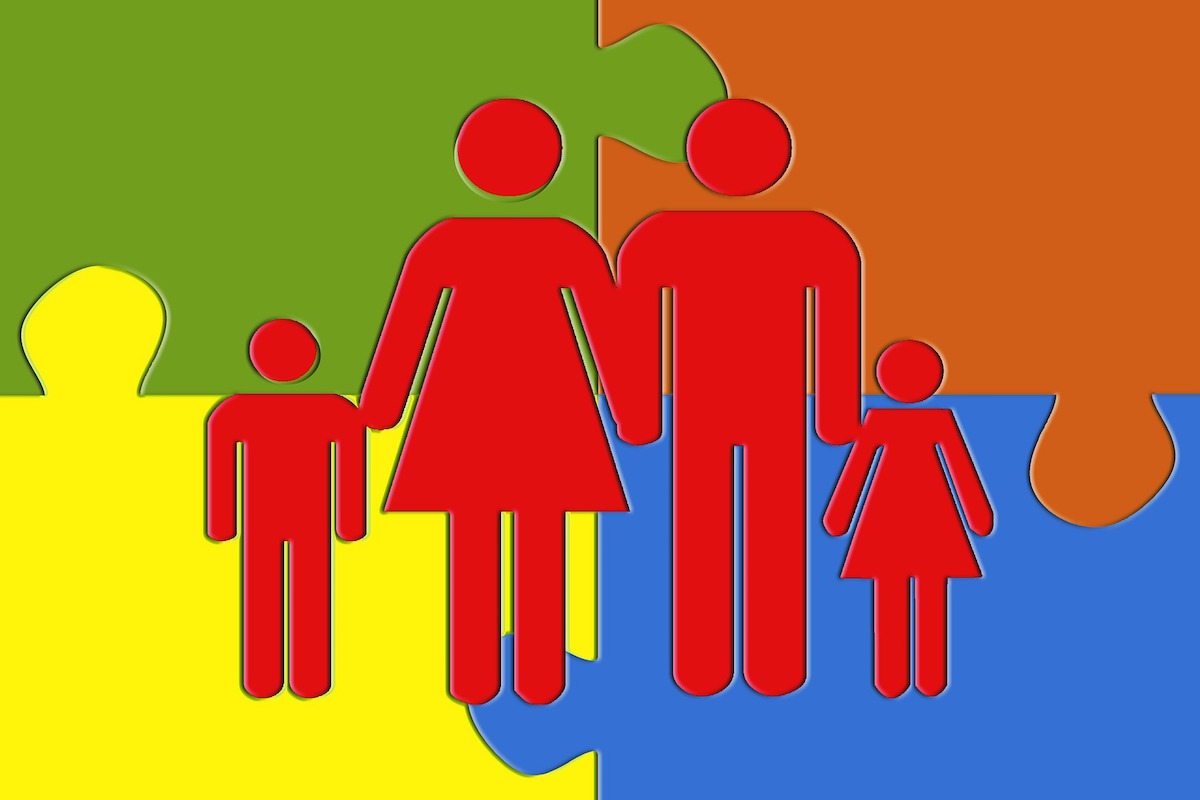And his mother and his brothers came; and standing outside they sent to him and called him. And a crowd was sitting about him; and they said to him, “Your mother and your brothers are outside, asking for you.” And he replied, “Who are my mother and my brothers?” And looking around on those who sat about him, he said, “Here are my mother and my brothers! Whoever does the will of God is my brother, and sister, and mother.” – Mark 3:31-35
Growing up, my brother and I didn’t have the benefit of living near our relatives. Although our entire extended family lived on the east coast for most of my childhood, we were at least a day’s drive before we could reach any of them. It always made me sad that my grandparents, uncles, aunts, and cousins were frequently able to see each other, and we were relegated to the occasional visit. Shortly before I entered high school, our family packed up and moved to California which made the distance from our relatives even greater. When the time came to purchase a home, I very clearly remember the conscious effort my parents made in finding a house that was close to the local parish—it ended up being only 2.1 miles away to be exact! They told us that the Church was our family, as well. That is how my brother and I were raised—within the arms of the parish family of the Annunciation Greek Orthodox Church in Modesto, California.
In a world that increasingly rejects the need for family and values individualism over community, family is more important than ever. But who, then, is our family?
In the traditional sense, family is comprised of the parents and children of a household brought together by divine grace. In addition, our family tree can include grandparents, uncles, aunts, and cousins from whom dynamic, vital relationships may or may not develop. For some people, their ‘family’ may consist of people who are constant and loving supports in their life but have no official place on their tree.
We know that our Orthodox Christian faith builds upon our family tree by adding spiritual relatives—godparents, godchildren, and other sacramental relations. But it doesn’t stop there. As baptized Orthodox Christians, we are truly related to one another by the body and blood of Christ offered to us in the sacrament of Holy Communion. “The cup of blessing which we bless, is it not a participation in the blood of Christ? The bread which we break, is it not a participation in the body of Christ? Because there is one bread, we who are many are one body, for we all partake of the one bread” (1 Corinthians 10:16-17). We are all one family in Christ—regardless of one’s age or stage in life.
God fashioned humanity so that it would exist through relationship. After creating Adam, He declared, “It is not good that the man should be alone; I will make him a helper fit for him” (Genesis 2:18). We were made by God to live in communion with one another. We need connections with others to survive. When we enter the world as newborns, connection is necessary for our survival. Studies have shown infants who do not have someone to bond with fail to thrive. As a result, their development can be delayed, they may detach from the world, and, in some extreme instances, they can die—essentially from this lack of connection.
Current studies on neuroscience show that it isn’t just infants who need real connections to thrive; we all do. We all need to belong. When people are less connected with others, there is a higher occurrence of depression and isolation, impacting overall day-to-day functioning. As Christians, a healthy relationship with Christ forms the basis for every one of our other relationships. In her book, Persons in Communion, Kyriaki Karidoyanes FitzGerald writes,
“Human persons are meant to be in communion with other persons. Authentic human life requires relationships with others. A relationship with God cannot be separated from relationships with other persons. As human persons, we share a common origin in God’s creative love and we share a common goal in God’s transfiguring love. We are bound together in God and are by nature social persons. We are not meant to live our lives in isolation from others. Rather, we are meant to be in relationship with others.”
As my husband and I reflect on what is most important in raising our son, one of the words that inevitably recurs is family. We want him to know his family and, to us, this goes beyond the blessing of grandparents, aunts, uncles, cousins, godparents and god-siblings. It is critical to us that he recognizes the parish as a family that will help to nurture and support him as he grows in the faith. But most importantly, we want him to know that he is infinitely loved by His heavenly Father and, through Him, intimately connected to the household of faith within the Church. This is the exalted family position that we all share—we are children of God.
Melissa Tsongranis is the associate director of the Center for Family Care of the Greek Orthodox Archdiocese of America. She and her husband, George, have one son, Nomikos, who will be 5-years-old this summer.
